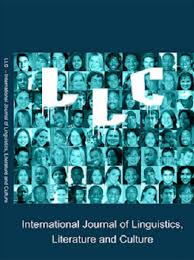From Translation to Naturalization, from Translanguaging to Lingua Universalis
From Translation to Naturalization, from Translanguaging to Lingua Universalis
Author(s): Franca DanieleSubject(s): Language and Literature Studies, Applied Linguistics, Sociolinguistics, Cognitive linguistics
Published by: European Scientific Institute
Keywords: languaging; translanguaging, translation; naturalization; code-switching; code-mixing; two-way code-flowing
Summary/Abstract: In many multilingual societies, English serves as a Lingua Franca, which refers to the use of English language as a way to communicate among speakers with diverse native languages, representing a bridge language. It is noteworthy that in these sociolinguistic multilingual settings language users are bilinguals, acting some language practices requiring specific cognitive strategies. The language practices that occur are languaging, translanguaging, and translation. Two previously reported cognitive strategies are discussed in the present paper as being used in multicultural, multilingual settings, code-switching and code-mixing, which are correlated with two language practices, languaging and translanguaging, respectively.Moreover, here, in the present paper, a novel cognitive strategy is identified and introduced for the first time, the ‘two-way code-flowing’, which is coupled with the ‘naturalization process’ during translation. Differently from code-switching and code-mixing, in two-way code-flowing, the languages flow back and forth reciprocally, and the activity always yields only one language.
Journal: International Journal of Linguistics, Literature and Culture
- Issue Year: 11/2024
- Issue No: 2
- Page Range: 1-27
- Page Count: 27
- Language: English

